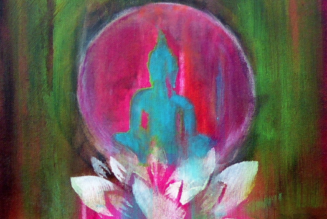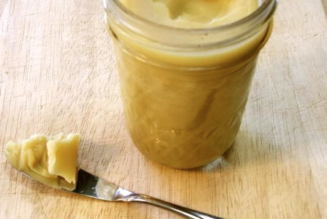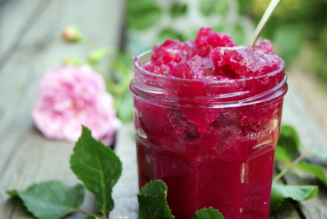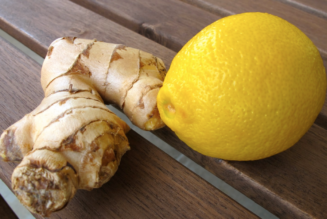The Social Media Detox
By now, we are all aware that social media has a tremendous impact on our culture and the world-at-large. Social media has offered the wonderful opportunity for people to re-connect with their old friends and acquaintances. However, at the same time, has social media given us a false sense of connection? According to Cornell University professor, Steven Strogatz, social media sites can make it more difficult for us to distinguish between meaningful relationships we foster in the real world, and the numerous casual relationships formed through social media. By focusing so much of our time and energy on these somewhat less meaningful relationships, our most important connection, he fears, will weaken.
“What’s on your mind?”, asks FB.
We live in a world overrun by stress and anxiety. Although one could argue that feeling overstimulated is a result of anxiety, it also could be that the overstimulation is actually causing our anxiety. Overstimulation is defined as a state of over-arousal or being stimulated to an excessive degree which can actually damage the brain. Yep. This is serious. Therefore, the next time Facebook asks, “what’s on your mind?” – the answer should be … “nothing”.
“What The Internet Is Doing To Our Brains.” – Author Nicholas Carr
“Most of us are on the Internet on a daily basis and whether we like it or not, the Internet is affecting us. It changes how we think, how we work, and it even changes our brains. We interviewed Nicholas Carr, the author of, “The Shallows: What the Internet is Doing to Our Brains,” about how the Internet is influencing us, our creativity, our thought processes, our ideas, and how we think.” – Epipheo
The Social Media Detox:
1. Unplug – Pratyahara
2. Breathe – Pranayama
3. Nourish The Body
4. Protect The Brain
5. Enhance The Mind
For real rejuvenation to be possible, one should generally reduce all physical activity and exercise for at least a few days. Likewise, one should start with spending more time in nature or consider a retreat in nature or simply visiting an ashram.
1. Unplug
Rejuvenation of the mind rests firmly upon stillness. Interestingly, each one of us inherently possess the capacity to access and harness higher forms of energy within which is more than what we would normally access from the outer world. For example, pratyahara, which literally means “withdrawal” is a yogic practice which helps to provide a state of deep relaxation in which the nervous system can be rejuvenated. After all, silence, rest, solitude, or simply just unplugging and letting go – are all the foundation for deep relaxation and rejuvenation.
Eight Limbs of Yoga:
- Yama : Universal morality
- Niyama : Personal observance
- Asanas : Body postures
- Pranayama : Breathing exercises, and control of prana
- Pratyahara : Control of the senses
- Dharana : Concentration and cultivating inner perceptual awareness
- Dhyana : Devotion, Meditation on the Divine
- Samadhi : Union with the Divine
Unplugging.
Pratyahara is often compared to a turtle withdrawing its limbs into its shell– the turtle’s shell is the mind and the senses are the limbs. Therefore, simply close your eyes, relax your jaw, and bring your focus and attention inwardly. As you will soon come to realize, the breath and the mind are interrelated and by becoming more increasingly aware of the breath, the senses of the outer world soon begins to diminish.
“Just as a tortoise withdraws its limbs, so when a man withdraws his senses
from the sense objects, his wisdom becomes steady.”
-Bhagavad Gita
Note:
Sense withdrawal means that the senses cease to be engaged or connected to the objects traveling in the train of the mind. It does not mean the suppression, repression, or stopping of those thoughts. They may naturally slow down or decrease to some degree, but the method itself is to break the contact, to cease connecting with the thought patterns. This means allowing thoughts to flow without interruption, while the senses are simply not diverted into those thoughts.
You will notice that as the senses withdraw, the mind awakens and becomes far more sensitive and intuitive. This newly awakened mind with greater sensitivity will now intuitively want to avoid overstimulation of the senses and will naturally just want to “be” – and what is a more natural state of being than breathing?
2. Honor Your Breath
According to Vedic text, we are given at birth a certain number of breaths as part of our human endeavor and the basis for living longer is – breathing slower. The fundamental aspect of life is the act of breathing and in Ayurvedic & Yogic thought, the breath is not just the air and the action of the lungs. Instead, the breath provides the life-force [“prana”] which is the subtle energy that vitalizes and rejuvenates us every moment of the day. That said, pranayama or yogic breathing is probably the most important rejuvenating practice that we can do on a daily basis. Therefore, after unplugging from the world of overstimulation it is now time to learn how to breathe in life-giving prana.
Take Notice Of Your Breath:
- sit comfortably on a chair with your feet slightly apart
- place your palms on the abdomen
- feel how your abdomen expands as you inhale
- feel how your abdomen contracts as you exhale
- slowly breathe in deeper; slowly breathe out completely
- bring your attention to this rhythm of life
Congratulations.
You are now becoming more aware.
3. Nourish The Body
Now that you are becoming more aware, let us now nourish the body and mind. According to Ayurveda, longevity and wellbeing depends largely upon not being weighed down but instead allowing the spirit to move freely within us. This requires a nourishing diet. Generally, a nourishing diet from an Ayurvedic perspective is considered a “sattvic diet” and includes good quality vegetarian food, including dairy products, whole grains, beans, vegetables, fruits and nuts. This sattvic diet helps to increase purity and clarity to the mind.
Organic Churnas
Ready-to-use spice mixtures satisfy the six ayurvedic tastes considered essential for balance and good digestion.
Practical Tips For Healthy Digestion
Although simple, these principles if followed routinely, are often enough to help improve your digestion and overall health. Often it’s the simple things that are most effective and oddly enough – most overlooked. That said, let’s quickly take a look at the basics.
- All food should be freshly prepared, nutritious, and appetizing
- Food should generally contain all 6 tastes balanced to one’s needs
- We should leave 4-6 hours between meals with no snacking in between
- Eat your largest meal during the day when the sun is at its peak
- Relax and enjoy your meals in a calm soothing environment
4. Protect The Brain
The human brain contains about 100 billion cells which continuously require oxygen. Because of this oxygen demand, the brain is particularly susceptible to oxidative damage; i.e. free radicals. Antioxidants are therefore crucial for longevity and continued effective functioning of the brain.
Amrit Kalash
Amrit Kalash is a powerful broad-spectrum antioxidant and contains Amalaki which is considered the richest natural source of vitamin C, along with a rich balance of other herbs. Amrit Kalash has been shown to be 1,000 times more potent as a free radical scavenger than vitamin C or E.
5. Enhance The Mind
Shirodhara is undoubtedly one of the most popular Ayurvedic treatments in the west. The word ‘shiro’ means head and ‘dhara’ means steady flow. Therefore, shirodhara involves pouring a steady stream of soothing oil over the forehead and acts as a method of relieving stress to the restless mind.
The Moving Mind
The science of Ayurveda speaks of vata as being the basis of all movement of the body and mind. When vata is in excess [within the mind] it can result in anxiety, nervousness, depression, insomnia and many other forms of difficulty handling stress. With nearly eighty percent of all diseases in the west being attributed to stress, it is no wonder why Shirodhara has been considered one of the most popular Ayurvedic treatments of modern day.
Organic Vata Calming Tea
Sweet, soothing choice to help restore balance quickly whenever life gets too hectic.
Creating Stillness
Shirodhara is a classical and a well-established ayurvedic procedure of slowly and steadily streaming medicated oil on the center of the forehead while resting quietly on a comfortable bed. Other liquids like coconut water, buttermilk, milk, etc. are also used depending on the individual need of the patient. Ultimately, this procedure helps to induce a relaxed state of awareness, mental clarity, and even thought to help produce improved “psychoneuroimmunology”; the ability to handle stress.
Stress Free Mind
Supports natural resistance to daily mental stress and fatigue; promotes peace, stability, and calmness under pressure.
Herbs – Enhancing The Mind
Ayurveda talks highly about a special class of herbs called “Medhya” herbs. Ultimately, by providing nourishment to the brain, these herbs are especially useful for the mind and helps to enhance learning while improving both the retention and recall of knowledge.
Intelligence Plus
Promotes natural intelligence; rejuvenates mental processes; supports attention span and concentration; promotes positive emotions and self-confidence.
Mind Plus
Stress and fatigue can diminish mental strength and clarity. Support mental functioning under stress and revitalize the mind with Mind Plus.
Organic Youthful Mind
Supports mental functioning as one ages; removes toxins that impede learning, memory, and recall; promotes the development of consciousness.
Benefits Of Meditation
It seems that research centered around the benefits of meditation have now been rolling in steadily validating the ancient wisdom common to both Ayurveda and Yoga. Ayurveda is an ancient science which literally means ‘the science of life’. A basic fundamental premise to both Ayurveda and Yoga is that – both a sound mind and sound body are integral to one’s overall health and well-being.
Just Some Of The Potential Benefits Of Meditation:
– greater clarity and inner calmness
– increased creativity and happiness
– improved sense of emotional stability
– reduced level of anxiety and depression
– improved brain function and memory
– reduced level of stress
… the list can go on and on …
Want More?
Oil Massage
Massage yourself with warm organic sesame oil. Sesame is warming and is generally considered beneficial to every body type for this time of year. Massaging oil on the body is a great way to keep the skin soft, supple and wrinkle free. It is a rejuvenating technique that improves circulation and, when done at night, induces sleep.
Organic Sesame Oil
Enhance immunity and experience a sense of well-being. Our pure golden Sesame Oil is organic, extra-light, chemical-free and cold-pressed, allowing its chemical composition to penetrate the deeper layers of the skin.
“Give yourself a full-body oil massage on a daily basis. It is nourishing; pacifies the doshas; relieves fatigue; provides stamina, pleasure and perfect sleep; enhances the complexion and the luster of skin; promotes longevity; and nourishes all parts of the body.” – Ancient Wisdom Of Ayurveda
Disclaimer
The sole purpose of these articles is to provide information about the tradition of ayurveda. This information is not intended for use in the diagnosis, treatment, cure or prevention of any disease. If you have any serious acute or chronic health concern, please consult a trained health professional who can fully assess your needs and address them effectively. If you are seeking the medical advice of a trained ayurvedic expert, call or e-mail us for the number of a physician in your area. Check with your doctor before taking herbs or using essential oils when pregnant or nursing.

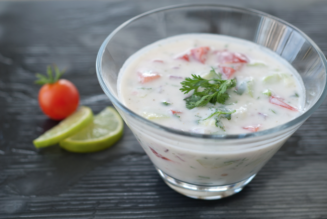
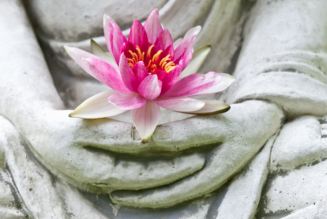
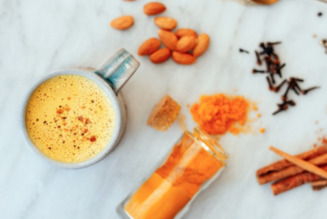
![Female Health: Amenorrhea [cessation of menses] – An Ayurvedic Perspective](https://healthyayurveda.com/wp-content/uploads/2015/07/1.-Amenorhea--327x219.png)
